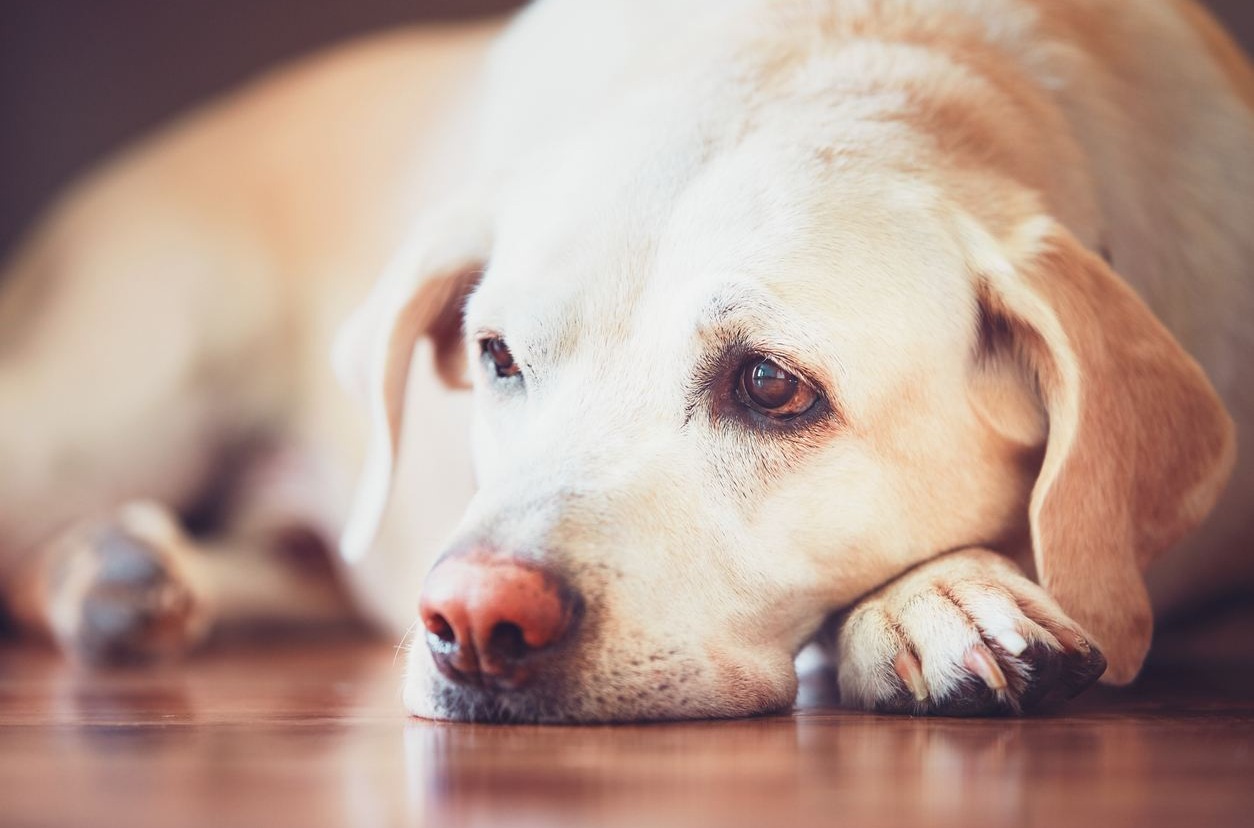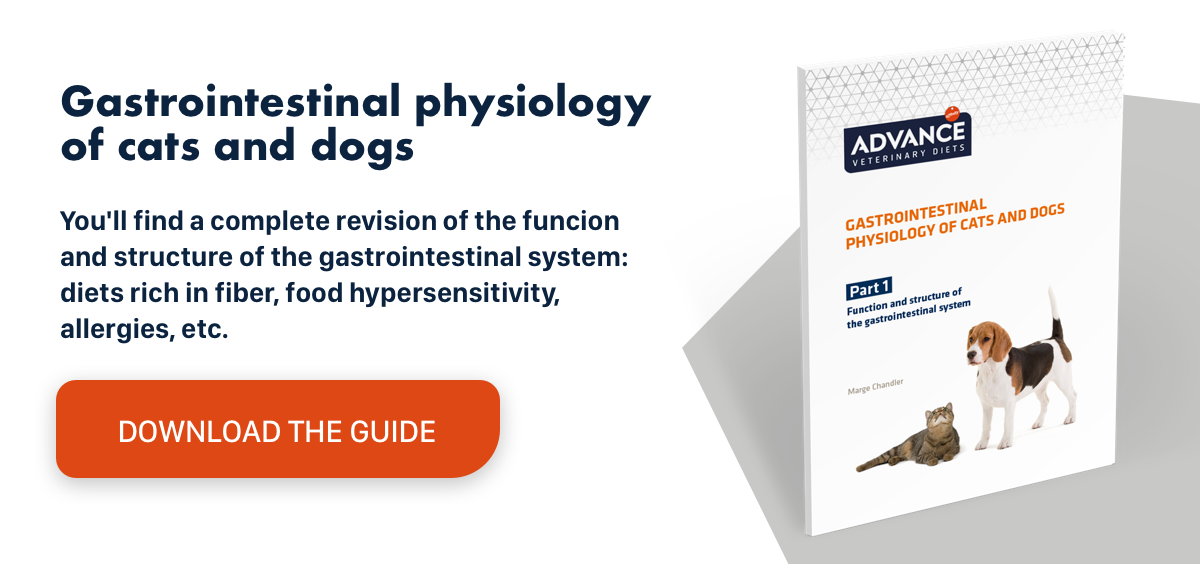Vomiting and diarrhoea in dogs are more prevalent in the summer
Vomiting and diarrhoea in dogs: introduction
Acute gastrointestinal disorders are one of the main causes of a visit to the vet and are more frequent in summer months. The most common signs are vomiting and diarrhoea. In most cases, this clinical picture is resolved by introducing appropriate treatment and dietary management.
Puppies should receive extra attention, as they are more prone to intestinal problems between 7 weeks and 3 months of age. In a longitudinal study of vomiting and diarrhoea, the authors observed that the incidence depended on breed, sex, environmental factors and age, with a greater likelihood of occurrence in the first few months of life.

Vomiting and diarrhoea in dogs: role of nutrition
Selecting the right diet is crucial to provide nutrients that help strengthen the growing dog’s immunity, protecting it from external infections.
The period between birth and adulthood is a very sensitive stage, since the dog’s immune and digestive systems are still developing. When aged between 6 and 8 weeks old, a puppy’s maternal antibodies start to decline until around 16 weeks old, by which time it will need to have developed its own immunity.
Once the immune system is developed, the puppy is ready for a change in diet and the introduction of solid foods. Some diets include certain ingredients called immunonutrients. Particularly noteworthy are:
- Nucleotides: increased antibody production. They help improve the immune response to vaccines and external agents.
- Prebiotics: stimulate the growth of healthy microorganisms in the intestine (lactobacilli and bifidobacteria).
- Plasma immunoglobulins: reinforce the immunity of the intestinal mucosa and increase blood antibody levels in puppies.
It has been shown that dogs fed these nutrients have a greater ability to fight off diseases and develop more healthily.
Nutrition also plays a crucial role when digestive problems occur and should meet the following objectives:
- Restore the intestinal barrier and keep the immune system healthy.
- Increase antibody activity.
- Facilitate nutrient uptake.
- Reduce inflammation.
In the event of episodes of vomiting and diarrhoea, the patient’s diet should be changed to a highly digestible diet that is introduce gradually, with small rations spread out over 3 to 4 servings to minimise osmotic load on the intestine.
